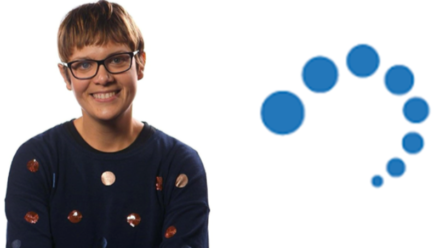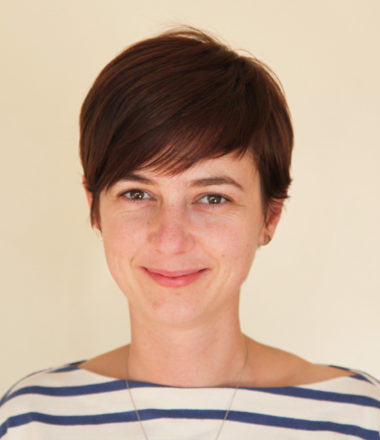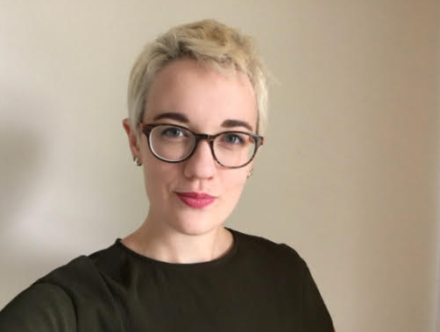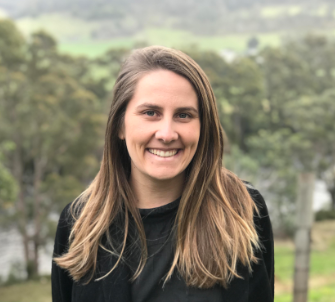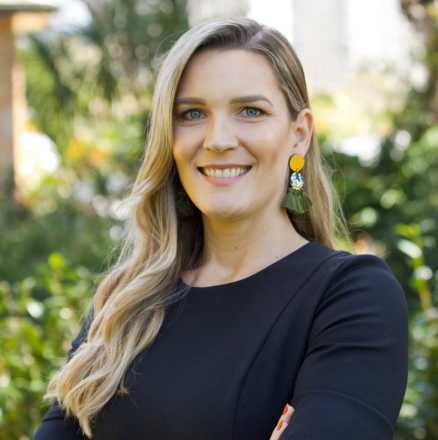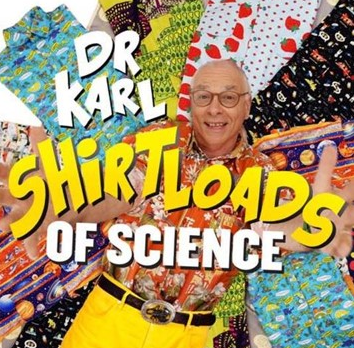
Why did you choose to study science?
There was no real “choice”. It was all that was available at the Catholic High School I went. BUT, as it turned out, that turned out to be very fortunate. Physics and Maths gives most people an excellent “mental toolbox”, that prepares them for virtually any future career.
(Of course, in Science Communication, you need a wider Knowledge Base, but Physics and Maths are a great start. But don’t panic if you don’t have Physics and Maths. We all have different Areas of Ignorance.)
Looking back now, what has been the best part of your career in SciComm?
The best thing has been that I can help make the world a better place (Big Scale) by talking about Vaccination and Climate Change, and that I can help liberate people from what’s holding them back from a better life (Small Scale).
When I’m in the local supermarket, typically a random person will come up to me and say, “I’ve been listening to you on Triple J for n years, and as a result, I’ve now changed my career to become a sparkie/nurse/computer scientist/finish my education etc”. This is incredibly satisfying – but it leaves me with a mystery. What is it, about listening to somebody answering random science questions on radio, that sets somebody off on a change to a more satisfying career? I have no idea, but I’m thrilled that they have benefitted.
I’ve also (accidentally) saved a few people’s vision, and at least one person’s life, when I described (again on Science Talk Back Radio) the medical pathway of a few conditions, and what to do. One was the description of what it means when you (perhaps after a blow to the head) see a “curtain” fall across part of your vision on one eye (retinal detachment, you have 6 hours to get the retina stitched back on). The other was the “lucid interval” after a blow to the head when you go unconscious, wake up apparently fine, but after a little while of an hour or so, being to feel sleepy (rupture of the middle meningeal artery, you need to have the temple bone drilled out, and the ruptured ends of the middle meningeal artery tied up, or else you die). This was the case with a 13-year-old female, who had heard me talk about it, recognised that this had happened to her at a weekend Sports Day, forced her parents to take her to Emergency, and collapsed in the doorway on the way in. She had told her parents to say “Middle meningeal artery rupture” to the Emergency staff. She had emergency surgery, and lived, with no bad outcomes.
And of course, I have no idea of how many lives I’ve saved by saying repeatedly on air, “Get vaccinated, get vaccinated, get vaccinated.”
Where has your career led you?
Science Communication has led me into being a TV Weatherman, a test driver of 4WDs through the Australian Outback, travel to Mongolia and Antarctica, and more.
Science Writing can also (I accidentally discovered) give you a career with longevity.
Consider a music band that writes and performs their own work. Mostly they fail (which is a terrible shame, as there is a lot of luck involved in getting the Big Break), but occasionally they succeed. But in the vast majority of cases, they are at their peak for only a decade – maybe two. Then “something” fades away, and they don’t do any new work. (But blues performers seem to go on for decades, always doing new stuff.)
But Science Writers have access to the work of the research Scientists who are always providing a vast and exciting smorgasbord of brand new discoveries, that were not known last week! As long as there are Scientists, Science Writers will never run out of material to write about.
What excites you most about your work?
Being continually astonished by all the exciting new stuff that scientists are discovering.
What advice do you have for anyone considering a career in SciComm?
First, read widely. I look for two main topics – “quirky/weird stuff” that people like, and “fundamental knowledge stuff” for my own further education. When I find something that could one day grow/evolve into a story, I set up a file and save my “something”. I currently have over 5,500 files (about 18GB) that have NOT yet grown into stories. For example, the story on Other Solar Systems took from 1980 to 1995 before the scientists discovered other solar systems. But I have some files, (such as Memory, and Laughter) that have not yet matured. And sometimes, the story is ready as soon as I found it. (like the story where the Daily Mail claimed that “cockroach milk” – yes, it does exist! – would be the new superfood.)
Start writing 4 stories every week. And then try to sell them. And keep writing 4 new stories every week. Repeat. (Each weekly 5-minute Great Moments in Science story I do for the ABC takes an average of 5 hours to write.)
Try ALL media – print, radio, web, etc. In my case, it took only a few decades of hard work to become an overnight success. Do a 3-day Comedy Workshop (it cost me about $500 – a bargain) and start doing stage performances. (In general, once I have written a story, it takes me about one hour to write one minute of stage performance.)
It also helps to have a broad education – hard sciences, life sciences, psychology, etc, etc. But don’t worry – you can pick up stuff on the way.
Story writing (for me) has 3 parts.
The first part is that I was lucky enough to get my education when the Australian Government saw education as a worthwhile investment in the future – so I got all my 16 years of University education essentially for free. A broad education is important, but don’t worry if you don’t have this. See part 2.
The second part is that I continually educate myself further by reading about $10,000 of journals each year – including Nature, Science, Australian Potato, Circuit (the journal of the sparkies), New Scientist, Cosmos, etc etc. For example, the first time I read the New Scientist, I couldn’t understand a fair amount of the science behind the stories. But after a few months, my knowledge base had improved, and the stories became much more understandable.
The advantage of self-education, is that when you learn something, in general, you really know it well.
The disadvantage of self-education is that you don’t know of the gaps in your knowledge (of a particular field). That’s where teachers come in very handy – they know that specific field.
The third part is to actually sit down (or stand at the standing desk) and spend 5 hours writing a story, checking all the references and original sources, as I can conveniently do. If you just let all the stuff that you have read and marvelled at just float inside your brain, soon they get confused and jumbled. But the hard work of actually writing a story, reading it back and realising that there are gaps, and then re-writing it, has two results. It makes the final story better AND it locks the story into your brain and memory better. Mind you, I have to refresh/read the story/talk about the story at least once per year to stop it falling out of my memory banks. In general, for book-writing, the time taken to write a story increases as the square of the number of words. And try to get an expert in the field to look at your story. (I’m not an expert in any single field.)
I’m most happy to give any Sci Comm folk a guided tour through my Radio Science Talk-Back, and my weekly Science Q&A Sessions with two schools every week, in Sydney (or other cities, if I happen to be on the road). Ring +61 2 9351 2963 to organise.
What are some of the greatest challenges that you’ve overcome in your SciComm career?
My many and deep areas of ignorance – geology, metallurgy, histology, etc.

